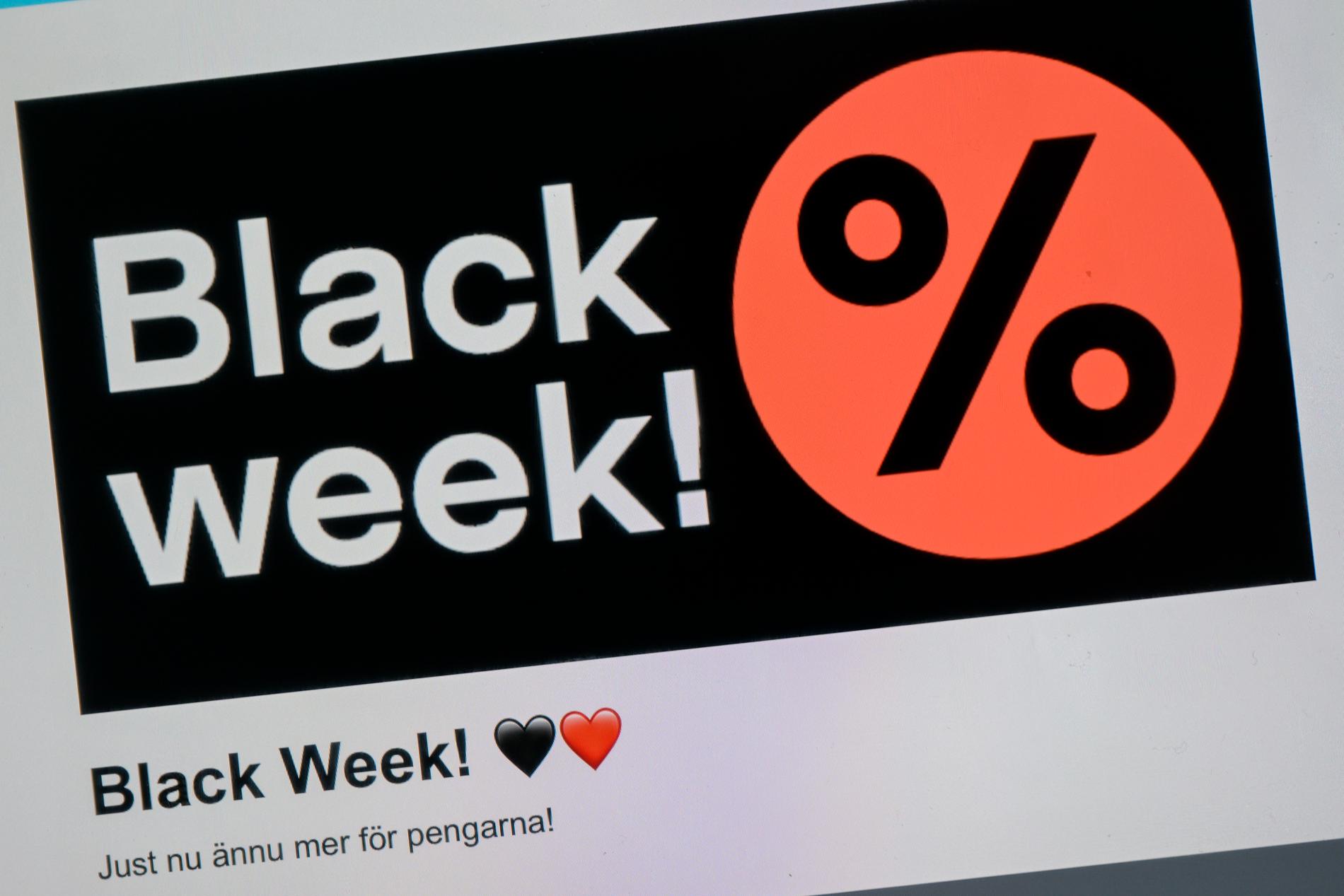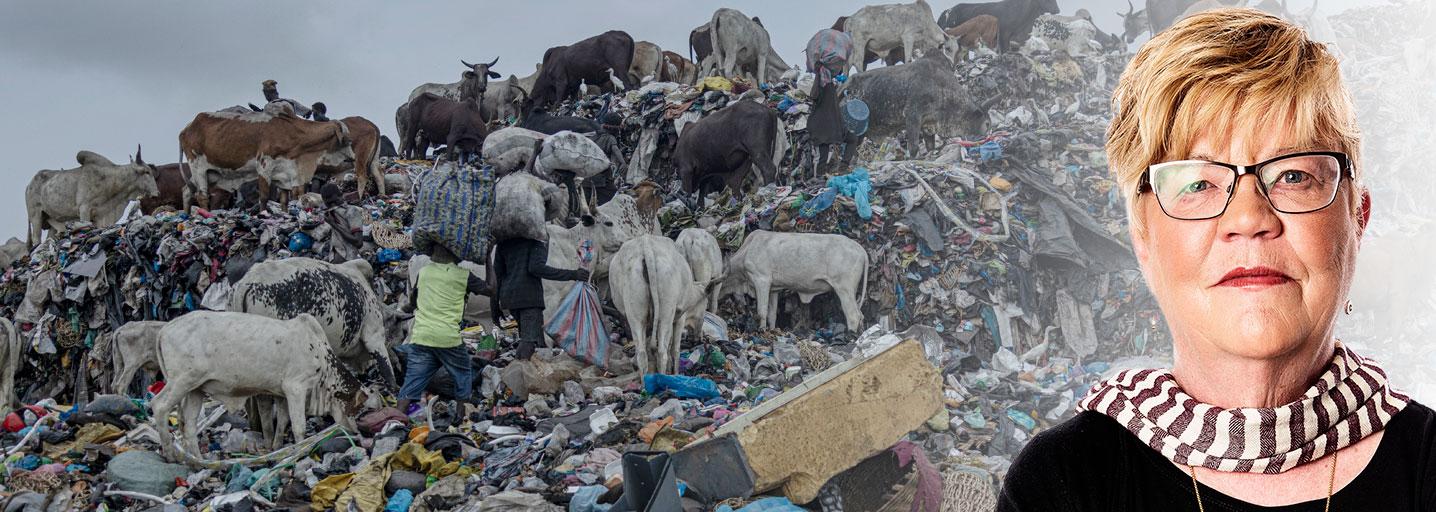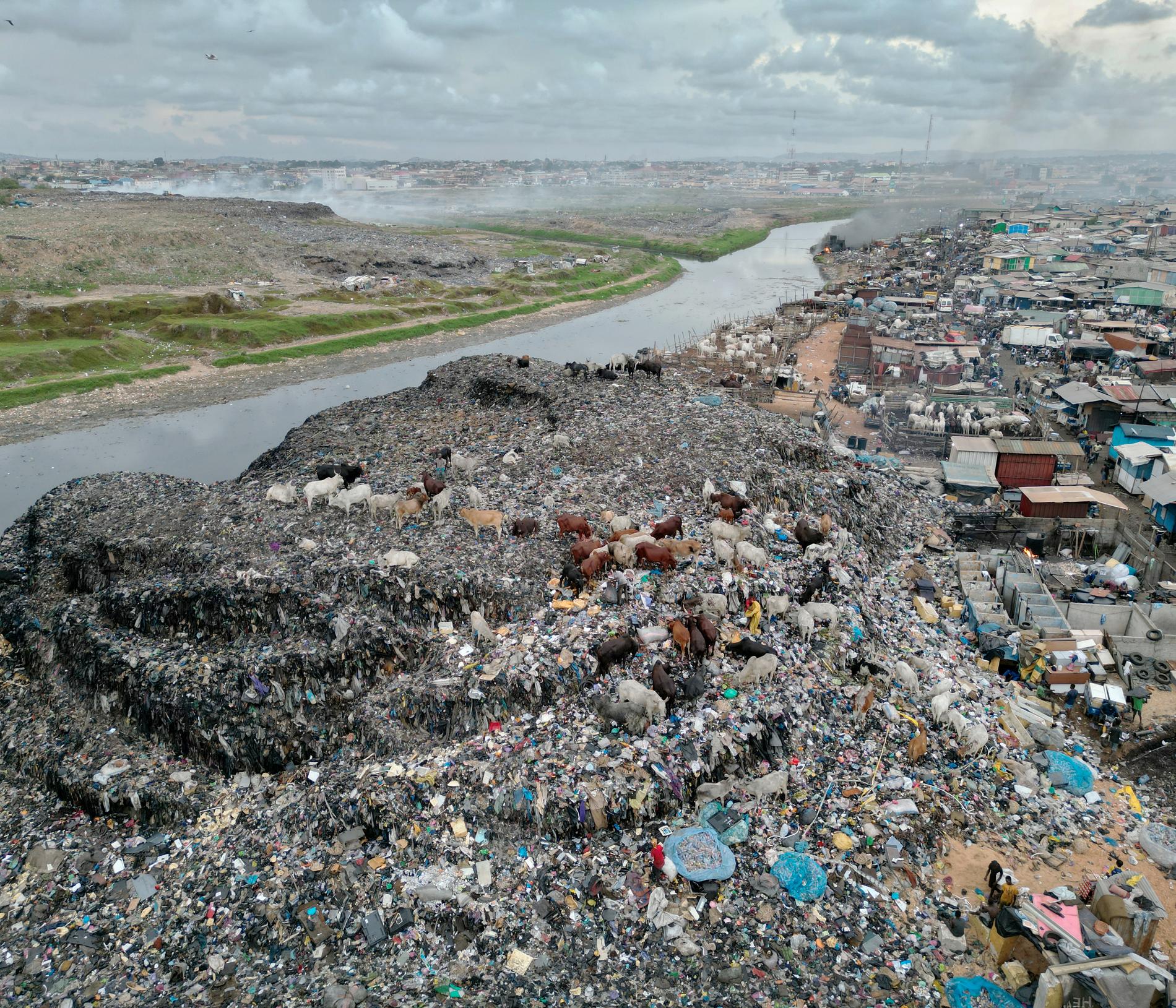Columnists
Black Week
A hard slap in the face for the climate That's why the politicians are cowards
Lena Mellin
This is a commenting text. Analysis and positions are the writer's.
Published 05.20
Monday marked the start of this year's climate-smart Black Week shopping party. Photo: Magnus Wennman
Black week began with a pitch black slap.
It's not about overpriced frying pans.
But that the 1.5 degree target will not be reached.
I was present at the UN climate meeting in Paris in 2015. At the old Le Bourget airfield, the world gathered and they agreed on something that was perceived as epoch-making. America's John Kerry gave a fantastic speech about what was at stake and Sweden's then Deputy Prime Minister and Climate Minister Åsa Romson rushed around with something stressed about him.
But it ended in euphoria. A global agreement that the world's emissions would be limited to "well below" (well below) two percent, i.e. down to 1.5 percent.
I was also there in Copenhagen six years earlier. A ground-breaking meeting, it was said. America's Barack Obama was there, a meeting couldn't get more star shine at the time.
But it ended in nothing. The image of the fallen leaders was broadcast across the world. Fredrik Reinfeldt, then president of the EU, sits in a conference room together with Obama and Germany's Angela Merkel, among others, and looks like they sold the butter and lost the money. And that's exactly what they had done.
Now it's time again. The UN's 28th climate meeting begins on Thursday in Dubai. There is no indication that the joy of Paris will be repeated. Rather that it will be as gloomy as in Copenhagen.
On Monday, when the kick went off for this year's climate-smart shopping party Black week, the UN climate agency Unep presented its last report before the meeting. It was a read worthy of the black week.
The 1.5 degree target is basically no longer possible to reach. That was eight years ago. But since then, development has galloped.
As early as 2029, warming will be 1.5 degrees if nothing radically changes. 2023 will be the Earth's warmest year on record.
With the commitments that the countries have now made, the earth's temperature will have increased by between 2.4 and 2.9 degrees by the end of the century.
In other words, everything is to hell. Already now the globe is hit by one disaster after another that can be explained by warming. Heat, drought, torrential rain, floods, crop failure, rising sea levels.
What is needed then? Courageous, educational politicians. Politicians who do not sweep the problems under the carpet every day when there is no flood or storm or crop failure or forest fire.
Do we have it? Unfortunately not. Poor UN chief Antonio Guterres constantly repeats that time is running out, the countries must come together, the situation is night black.
But he seems to be speaking on deaf ears. Emissions do not decrease. They are increasing.

Sweden is no exception. Ulf Kristersson's government has changed policy and is deliberately increasing emissions.
The world will judge today's politicians harshly. Despite an overwhelming amount of facts and forecasts, they still neglect to do what is needed.
For example, the use of fossil fuels will not decrease in this decade. Despite all electric cars, the increase will continue.
The political short-sightedness is startling. The problems will not go away if global warming continues. On the contrary, they multiply.
Climate refugees, food shortages, eroding coasts, race, new diseases – the list of problems is almost endless.
Why do the world's politicians do so little? Why does the Riksdag do so little?
If you want to be kind, you can state that the problems are big. And expensive. And includes a technological development that has not yet reached its full potential.
A meaner way of putting it is that politicians want to be re-elected. The UN climate agreement is global. But there is no global government.
The voters are at the national level. The politician who wants to be re-elected does best not to clash with his base. Then it will be abysmal and goodbye in the next election.
The national politicians cannot bear to make too difficult decisions or to make trade-offs that do not gain general acceptance. They are cowards to get re-elected.
There we are now. In a very protracted Black week.
The 1.5 degree target means that emissions of greenhouse gases, mainly carbon dioxide, are reduced so much that global warming is limited to 1.5 degrees in the year 2100 compared to pre-industrial times. Right now it is at 1.43 degrees.
TRE SPANINGAR


Inga kommentarer:
Skicka en kommentar